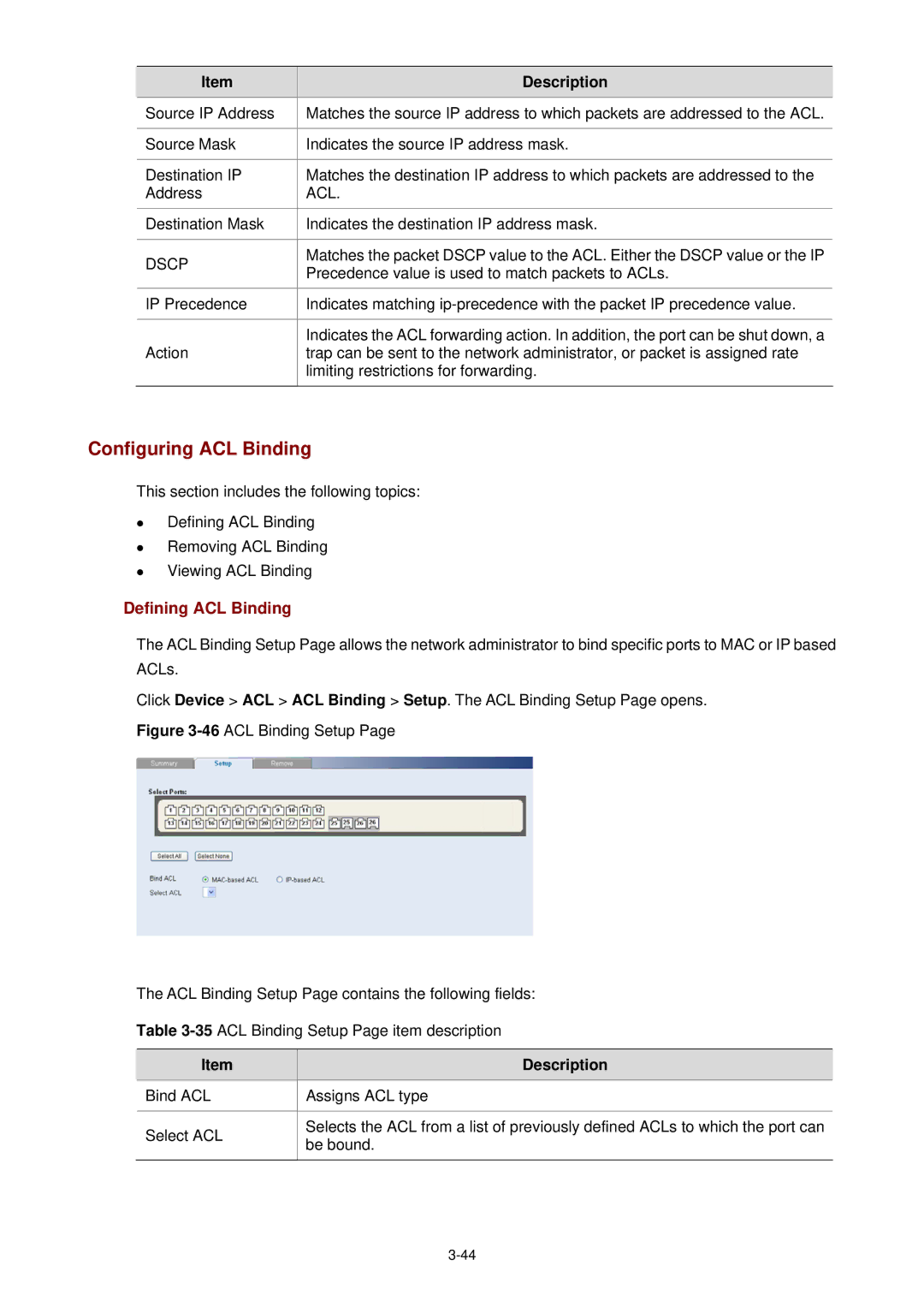
| Item |
| Description |
| Source IP Address |
| Matches the source IP address to which packets are addressed to the ACL. |
|
|
|
|
| Source Mask |
| Indicates the source IP address mask. |
|
|
|
|
| Destination IP |
| Matches the destination IP address to which packets are addressed to the |
| Address |
| ACL. |
|
|
| |
| Destination Mask | Indicates the destination IP address mask. | |
|
|
|
|
| DSCP |
| Matches the packet DSCP value to the ACL. Either the DSCP value or the IP |
|
| Precedence value is used to match packets to ACLs. | |
|
|
| |
|
|
|
|
| IP Precedence |
| Indicates matching |
|
|
|
|
|
|
| Indicates the ACL forwarding action. In addition, the port can be shut down, a |
| Action |
| trap can be sent to the network administrator, or packet is assigned rate |
|
|
| limiting restrictions for forwarding. |
|
|
|
|
Configuring ACL Binding
This section includes the following topics:
z
z
z
Defining ACL Binding
Removing ACL Binding
Viewing ACL Binding
Defining ACL Binding
The ACL Binding Setup Page allows the network administrator to bind specific ports to MAC or IP based ACLs.
Click Device > ACL > ACL Binding > Setup. The ACL Binding Setup Page opens.
Figure 3-46 ACL Binding Setup Page
The ACL Binding Setup Page contains the following fields:
Table 3-35 ACL Binding Setup Page item description
| Item |
| Description |
| Bind ACL |
| Assigns ACL type |
|
|
|
|
| Select ACL |
| Selects the ACL from a list of previously defined ACLs to which the port can |
|
| be bound. | |
|
|
| |
|
|
|
|
